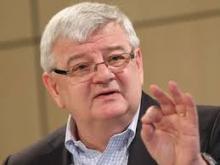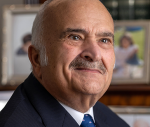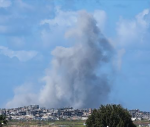You are here
All eyes on the Franco-German relationship
Nov 16,2022 - Last updated at Nov 16,2022
BERLIN — It is a common human prejudice to believe that everything was better in the past. But this bias rarely stands up to scrutiny, and perceptions of past Franco-German relations are no exception. While the bilateral relationship has long been of the utmost importance for Europe, it has also always been characterised by quarrels and even severe rifts.
The mythologising is understandable. The Franco-German relationship was the original foundation of the European Union, which began as a coal and steel community in the early 1950s, and is still the EU’s central axis. Without France and Germany, the largest, most economically and politically important players, embodying the balance between the European North and the Mediterranean South, no real progress toward European integration would have been possible.
But with its enlargement in 2004, the EU’s internal workings became more complicated, because a new dimension was added to the traditional north-south orientation: Central and Eastern Europe. This region’s importance has only grown now that Russian President Vladimir Putin has invaded a sovereign neighbouring country and brought large-scale war back to the continent.
Regardless of how that conflict evolves, there has been an irreversible loss of trust between Europe and Russia. Putin’s aggression has radically changed the strategic calculus and created the conditions for a new kind of Cold War in Central and Eastern Europe. His Russia represents a foreseeable long-term threat that will force the EU and its member states to invest much more in the ability to defend themselves, their liberal democratic system, and their principles by military means.
In short, the EU must transform itself into a sovereign geopolitical player with its own military deterrence capability to defend its interests. That challenge applies first and foremost to Germany, and not only because it is the most populous member state and the largest economy, residing at the heart of Europe. Equally relevant is its own horrific twentieth-century history. It was Germany that twice set a torch to the European continent, committing unparalleled crimes under Hitler until its unconditional surrender and partition.
The leading aggressor of the first half of the twentieth century then transformed itself into a country of peaceful traders and manufacturers. Forswearing war and pursuing a pacifist policy that became deeply engrained in its people, Germany became a global export champion. Over time, this post-war trajectory allowed it to build trust with its former enemies, which was a precondition for the peaceful reunification of 1990.
But Putin’s war of aggression has shattered the illusion that Germany can remain a pacifist trading country indefinitely. After 30 years of relative peace and stability, Europe is now under direct military threat once again. As the EU’s strongest economic power, Germany will have to bid pacifism adieu and start re-arming, effectively converting its economic strength into a strategic currency.
The country has already moved in this direction. In his “Zeitenwende” (watershed moment) speech in late February, German Chancellor Olaf Scholz announced a new 100 billion euros special fund for the German army, and then followed that up with a 200 billion euros package to soften the blow from surging energy prices. But make no mistake: this new Germany will inevitably be eyed suspiciously by its neighbours, especially France.
As the EU’s sole nuclear power and its only member state with a permanent seat on the United Nations Security Council (two things that Germany neither wants nor will ever achieve), France is clearly wary of Germany’s emerging new role. It is still unclear what kind of Europe the new Germany wants, and this uncertainty has created an unnecessary insecurity. The German government’s displays of ineptitude and lack of coordination following Scholz’s speech did not help matters.
Too much suspicion between France and Germany could lead to misunderstandings and unforced errors on both sides, giving rise to real conflicts that will further jeopardise European security. With a large-scale land war on its border, exactly the opposite is needed: much closer cooperation and collaboration between the EU’s two largest players, especially in the domain of joint arms projects.
The situation has been made even more complicated by the eastward shift in the EU’s center of gravity, and by the EU’s new promise to extend membership to Ukraine, Georgia and Moldova. These new accession processes will accelerate the EU’s transformation from a joint market and modernisation project into a geopolitical player. Moreover, there are longstanding and still unfulfilled promises of membership to the countries of the western Balkans — not to mention the extremely complex Turkish question. Bringing these countries into closer alignment is now clearly in Europe’s overriding strategic interest.
These regions, along with the eastern Mediterranean and North and West Africa, will be core concerns of European security in the coming decades. Europe will have to engage with them, while also working closely with its transatlantic partners through a strong NATO. Whether the EU can do that will depend first on France and Germany, which still must work together in friendship and good faith, despite disagreements and new complications, and cooperate with all Europeans in support of their common project.
Joschka Fischer, Germany’s foreign minister and vice chancellor from 1998 to 2005, was a leader of the German Green Party for almost 20 years. Copyright: Project Syndicate, 2022.












